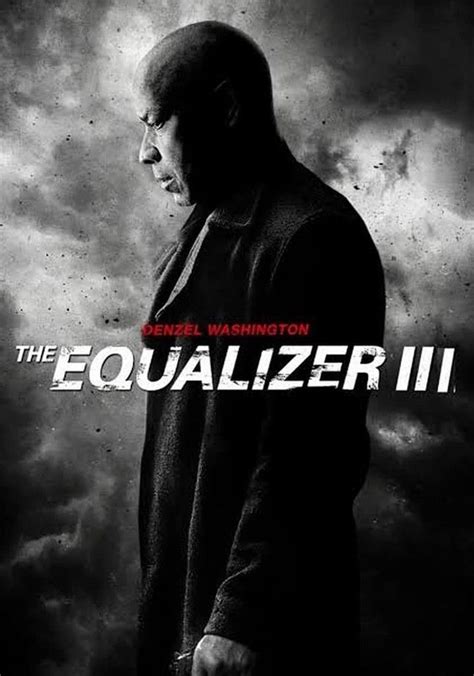
Kelsea Ballerini will not be returning to “The Voice” because, as she candidly revealed, juggling her own demanding touring schedule and burgeoning music career makes it impossible to dedicate the necessary time and energy to the NBC singing competition. Having served as a guest coach and fill-in mentor in previous seasons, Ballerini expressed that while she enjoyed her time on the show, her priority now lies in focusing on her own artistic endeavors.
Kelsea Ballerini has unequivocally stated that her departure from “The Voice” stems from the increasing demands of her own career as a touring musician and recording artist. Speaking candidly in various interviews and appearances, Ballerini explained that the commitment required to be a supportive and effective coach on the show simply doesn’t align with her current professional trajectory.
“It was a really amazing experience, but it takes a lot of time,” Ballerini stated in an interview. “And I was touring at the same time, writing a record at the same time, doing other TV things. It was just a lot, and I think to do it properly, you need to be able to devote all your time.” This sentiment underscores the core reason for her decision: a commitment to her own artistic pursuits.
Ballerini has served as a guest mentor for several seasons of “The Voice,” assisting coaches like Kelly Clarkson and Blake Shelton. She also stepped in as a temporary coach for Clarkson when the latter was ill during Season 20, showcasing her ability to connect with and guide aspiring singers. These experiences provided Ballerini with invaluable insight into the dedication required to be a full-time coach. She acknowledged the importance of providing contestants with undivided attention and support throughout the competition.
The decision to prioritize her own career reflects Ballerini’s strategic focus on long-term goals. Currently, she is actively engaged in touring, writing new music, and pursuing other television opportunities. The demanding nature of these endeavors leaves little room for the intensive commitment required by “The Voice.” Ballerini’s focus on her own career isn’t simply about immediate success but instead demonstrates a calculated approach to sustained growth and artistic fulfillment.
Her fans have responded positively to her decision, understanding the need to prioritize her own artistic journey. Many have expressed support for her continued success and have voiced excitement for her upcoming projects. This outpouring of support solidifies Ballerini’s standing as an artist deeply connected to her fan base.
Ballerini’s departure underscores the broader challenges faced by artists balancing multiple professional commitments. As musicians navigate the complexities of the modern entertainment industry, they often find themselves making difficult choices between various opportunities. Ballerini’s decision highlights the importance of prioritizing one’s own creative vision and long-term career goals.
The NBC singing competition will move forward without Ballerini, and no official announcement has been made regarding who might replace her in future seasons. However, speculation abounds regarding potential candidates who could fill the role. As “The Voice” continues to evolve, it will be interesting to see how the show adapts to changes in its coaching lineup.
Ballerini’s time on “The Voice” undeniably left a positive mark. She was known for her insightful guidance, her ability to connect with contestants on a personal level, and her genuine passion for music. Her contributions helped shape the journeys of many aspiring singers, and her presence will be missed by viewers and participants alike.
The country music star’s decision is a testament to her unwavering commitment to her craft. While her fans may be disappointed to see her leave “The Voice,” they can rest assured that she is dedicating her time and energy to creating new music and pursuing other exciting opportunities.
Expanding on Ballerini’s Rationale
Ballerini’s decision to leave “The Voice” is rooted in a complex interplay of factors, all stemming from her burgeoning career. To fully understand her rationale, it’s crucial to delve into the specifics of her schedule, her artistic priorities, and the unique demands of the singing competition.
Firstly, Ballerini’s touring schedule has become increasingly demanding. As her popularity has grown, so has the number of tour dates and the scale of her performances. Touring is a crucial source of income for musicians, and it provides a direct connection with their fans. However, it also requires significant time and energy, involving extensive travel, rehearsals, and performances.
Secondly, Ballerini is actively involved in writing and recording new music. Songwriting is the lifeblood of her artistic expression, and it requires dedicated time for reflection, creativity, and collaboration. Recording an album is an equally demanding process, involving countless hours in the studio, working with producers, engineers, and other musicians. The process of creating a compelling album takes enormous creative bandwidth, an ingredient in short supply when spread across multiple significant commitments.
Thirdly, Ballerini is exploring other television opportunities. While she hasn’t revealed the specifics of these projects, they likely involve a combination of acting, hosting, and other forms of on-screen appearances. Television can be a powerful platform for reaching new audiences and expanding an artist’s brand. However, it also requires a significant time commitment, involving rehearsals, filming, and promotional activities.
Balancing these three demanding activities – touring, writing/recording, and television – leaves little room for the intensive commitment required by “The Voice.” The show typically involves several months of filming, during which coaches must dedicate a significant amount of time to mentoring contestants, attending rehearsals, and appearing on television.
Ballerini acknowledged the difficulty of juggling these competing priorities in several interviews, stating that she felt she couldn’t give “The Voice” the attention it deserved while also pursuing her other career goals. She emphasized the importance of being fully present and engaged as a coach, and she didn’t want to compromise the quality of her work on the show.
Her departure from “The Voice” is therefore a strategic decision, aimed at optimizing her time and energy and maximizing her potential for long-term success. It’s a reflection of her commitment to her own artistic vision and her desire to create music and experiences that resonate with her fans.
The Impact of “The Voice” on Ballerini’s Career
While Ballerini’s departure from “The Voice” is motivated by a desire to focus on her own career, it’s important to acknowledge the impact that the show has had on her trajectory. “The Voice” provided Ballerini with a national platform to showcase her personality, her musical knowledge, and her ability to connect with aspiring singers.
Her appearances on the show undoubtedly increased her visibility and expanded her fan base. Viewers were drawn to her warmth, her humor, and her insightful critiques. She quickly became a fan favorite, and her presence on the show helped to solidify her status as a rising star in the country music scene.
“The Voice” also provided Ballerini with valuable experience in mentoring and coaching aspiring artists. She learned how to identify talent, how to provide constructive feedback, and how to inspire singers to reach their full potential. These skills will undoubtedly serve her well in her future endeavors, whether she’s working with other artists, developing her own music, or pursuing other creative projects.
Furthermore, “The Voice” helped to broaden Ballerini’s appeal beyond the country music genre. Her appearances on the show exposed her to a wider audience, including viewers who may not have been familiar with her music. This increased exposure helped to break down genre barriers and expand her reach into new markets.
Despite her departure, Ballerini has expressed gratitude for her time on “The Voice” and has acknowledged the positive impact it has had on her career. She remains on good terms with the show’s producers and coaches, and she hasn’t ruled out the possibility of returning in the future in some capacity.
The Future of “The Voice” Without Ballerini
With Ballerini’s departure, “The Voice” will undoubtedly undergo some changes. The show’s producers will need to find a replacement who can bring a similar level of expertise, charisma, and connection with contestants. The selection process will likely be thorough and strategic, as the choice of coach can have a significant impact on the show’s ratings and popularity.
Several potential candidates have been mentioned as possible replacements, including other established country music stars, pop singers, and even actors with musical backgrounds. The ideal candidate would be someone who is not only talented and experienced but also relatable and engaging.
The absence of Ballerini may also lead to some adjustments in the show’s format and content. The producers may decide to focus more on other aspects of the competition, such as the contestants’ backstories, the coaches’ rivalries, or the musical performances themselves. They may also experiment with new challenges and twists to keep the show fresh and exciting.
Despite these changes, “The Voice” remains a popular and successful television show, with a dedicated fan base and a proven track record of discovering new talent. The show’s core formula – combining blind auditions, coaching sessions, and live performances – has proven to be a winning combination, and it’s unlikely that the producers will deviate too far from this formula.
Ballerini’s Next Steps
As Ballerini moves on from “The Voice,” she has a bright future ahead of her. She is currently focused on touring, writing new music, and exploring other television opportunities. Her fans can expect to see her continuing to evolve as an artist, pushing creative boundaries, and connecting with audiences in new and exciting ways.
Her upcoming tour is expected to be a major success, with dates scheduled across the country and in other parts of the world. She will be performing her hit songs, as well as new material from her upcoming album. The tour will provide her with a chance to connect with her fans in person and to showcase her growth as a performer.
Her new music is also highly anticipated. She has been working with some of the top songwriters and producers in the industry, and she is experimenting with new sounds and styles. Her goal is to create music that is both authentic and innovative, and that reflects her personal experiences and perspectives.
Her other television projects are still under wraps, but they are likely to involve a combination of acting, hosting, and other forms of on-screen appearances. She has a natural charisma and stage presence that make her a natural fit for television, and she is eager to explore new opportunities in this medium.
Ultimately, Ballerini’s decision to leave “The Voice” is a testament to her ambition, her focus, and her unwavering commitment to her craft. She is determined to make her mark on the world of music and entertainment, and she is willing to make difficult choices in order to achieve her goals. Her fans can continue to look forward to exciting things from this talented and dynamic artist.
Frequently Asked Questions (FAQ)
-
Why did Kelsea Ballerini leave “The Voice”?
Kelsea Ballerini left “The Voice” due to the increasing demands of her own career. She cited the difficulty of balancing the show’s commitment with her touring schedule, songwriting, and other television opportunities. As she stated, to do the show properly, “you need to be able to devote all your time,” which she couldn’t provide given her other projects.
-
What was Kelsea Ballerini’s role on “The Voice”?
Ballerini served as a guest mentor for several seasons, assisting coaches like Kelly Clarkson and Blake Shelton. She also stepped in as a temporary coach for Kelly Clarkson during Season 20 when Clarkson was ill. Her role involved guiding and mentoring contestants, providing feedback, and helping them prepare for their performances.
-
How did fans react to Ballerini’s departure from “The Voice”?
Fans have generally reacted positively to Ballerini’s decision, expressing understanding and support for her prioritizing her own music career. Many have voiced excitement for her upcoming projects and have praised her commitment to her craft.
-
Who might replace Kelsea Ballerini on “The Voice”?
No official announcement has been made regarding Ballerini’s replacement. Speculation abounds, with potential candidates including other established country music stars, pop singers, and actors with musical backgrounds. The show’s producers will likely seek someone with expertise, charisma, and a strong connection with contestants.
-
What are Kelsea Ballerini’s future plans after leaving “The Voice”?
Ballerini is currently focused on her touring schedule, writing and recording new music, and exploring other television opportunities. She aims to continue evolving as an artist, create innovative music, and connect with her audience in new ways. She has not specifically detailed the nature of future television endeavors.
Deeper Dive: The Demands of Modern Musicianship
Kelsea Ballerini’s exit from “The Voice” casts a revealing light on the multifaceted and often overwhelming demands placed upon contemporary musicians. The romanticized image of the artist solely focused on their creative output is increasingly detached from reality. Success in today’s music industry necessitates a delicate, almost superhuman balancing act, juggling artistic endeavors with business acumen, marketing prowess, and relentless self-promotion.
The traditional model of record labels handling all aspects of an artist’s career has largely eroded, placing greater responsibility on the artist themselves. While major labels still exist and can offer significant resources, many artists, particularly those starting out or seeking greater creative control, operate independently or with smaller labels. This means they must take on roles previously handled by teams of professionals, including:
- Songwriting and Recording: The core artistic function, requiring dedicated time, creative space, and collaboration.
- Performance and Touring: A crucial source of revenue and fan engagement, demanding physical stamina, logistical planning, and marketing efforts.
- Marketing and Promotion: Building and maintaining an online presence, engaging with fans on social media, securing press coverage, and coordinating promotional campaigns.
- Business Management: Handling finances, negotiating contracts, managing legal issues, and making strategic career decisions.
In addition to these core responsibilities, artists are often expected to diversify their revenue streams and expand their brand through ancillary activities such as:
- Merchandise Sales: Designing and selling branded merchandise, from clothing to accessories, to supplement income and promote their music.
- Endorsements and Partnerships: Collaborating with brands to promote products and services, leveraging their influence and reach.
- Acting and Television Appearances: Expanding their visibility and reaching new audiences through television roles and guest appearances.
The sheer volume of these demands can be overwhelming, even for established artists with experienced teams. For those still building their careers, the pressure to constantly create, promote, and monetize can be exhausting and detrimental to their artistic output.
Ballerini’s decision to prioritize her own career reflects a growing awareness among artists of the importance of self-care and sustainable practices. She recognized that she couldn’t effectively balance the demands of “The Voice” with her other commitments, and she made the conscious choice to focus on her own artistic vision.
This decision should be seen as a positive step, not just for Ballerini but for the music industry as a whole. By prioritizing her own well-being and artistic integrity, she is setting an example for other artists to follow. It is a reminder that success in the music industry is not just about fame and fortune, but also about maintaining a healthy balance and staying true to one’s creative vision.
Examining the Role of Reality TV in Music Careers
Reality television singing competitions like “The Voice” have become a significant, albeit often debated, platform for launching and revitalizing music careers. While offering unparalleled exposure to millions of viewers, participation in these shows presents both opportunities and potential pitfalls.
The primary advantage of appearing on “The Voice” is the massive reach it provides. Contestants and coaches alike gain instant recognition and access to a broad audience that may not otherwise encounter their music. This exposure can translate into increased album sales, streaming numbers, concert ticket sales, and social media followers.
However, the reality TV environment can also be highly competitive and stressful. Contestants are subjected to intense scrutiny, both from the judges and from the public, and their performances are often judged on factors beyond their vocal talent. The pressure to perform well under these circumstances can be overwhelming, and many contestants struggle to cope with the stress and anxiety.
Furthermore, the fame and attention that come with appearing on “The Voice” can be fleeting. Many contestants find that their careers peak during the show’s run and then quickly fade away afterward. This is due in part to the fact that the show’s format is designed to create compelling television rather than to develop long-term musical careers.
Coaches on “The Voice,” like Ballerini, also face unique challenges. While the show can enhance their visibility and reinforce their brand, it also requires a significant time commitment and can detract from their own artistic pursuits. Coaches are expected to mentor contestants, provide constructive criticism, and engage with viewers, all while maintaining their own busy schedules.
Ballerini’s decision to leave “The Voice” suggests a growing recognition among artists of the limitations of reality TV as a career-building tool. While the show can provide a valuable platform for exposure, it is ultimately up to the artist to leverage that exposure and build a sustainable career. This requires a combination of talent, hard work, strategic planning, and a clear vision for their artistic future.
In conclusion, Kelsea Ballerini’s departure from “The Voice” is not simply a personal decision but a reflection of broader trends in the music industry. It highlights the increasing demands placed on artists, the growing importance of self-care and sustainable practices, and the limitations of reality TV as a career-building tool. Her decision serves as a reminder that success in the music industry requires a holistic approach, encompassing artistic talent, business acumen, and a commitment to one’s own well-being.









